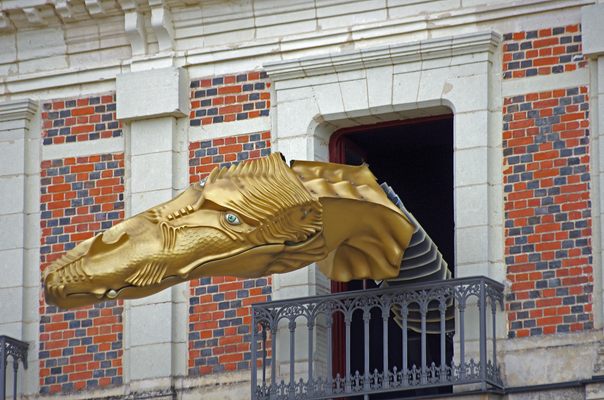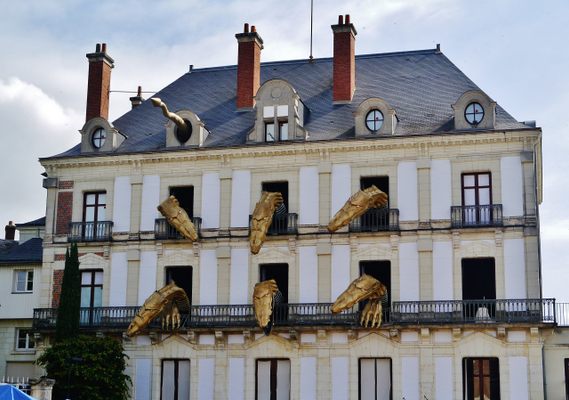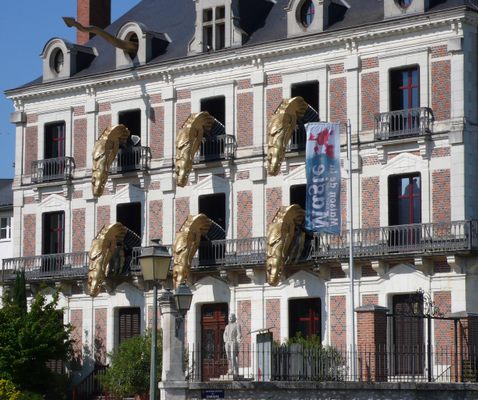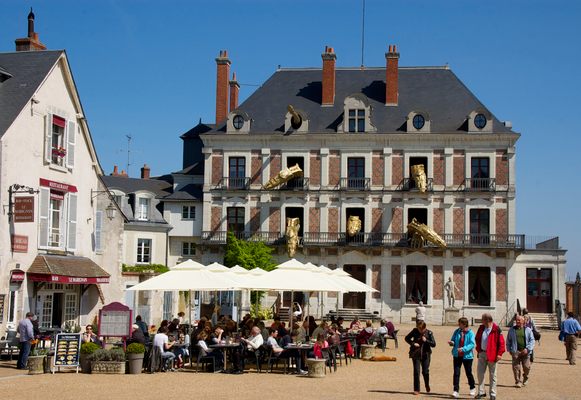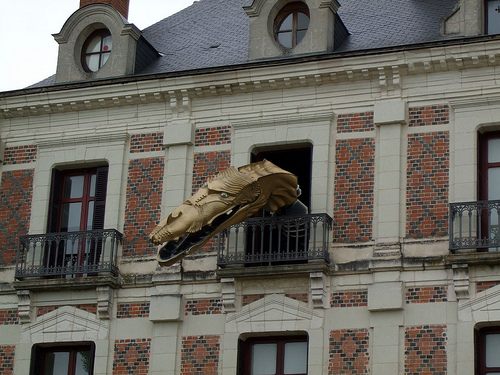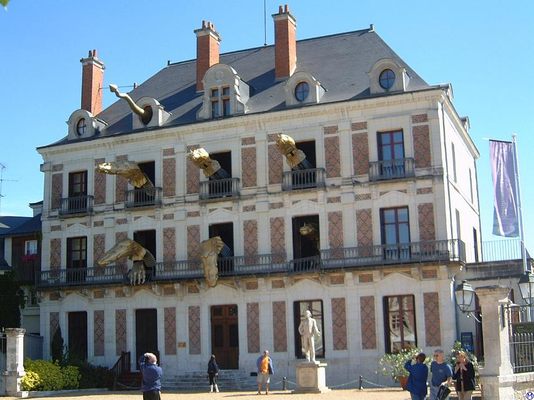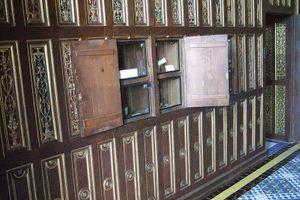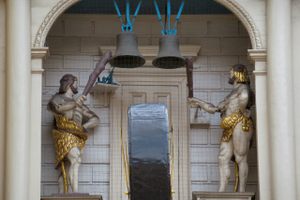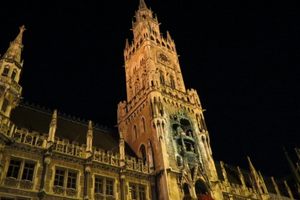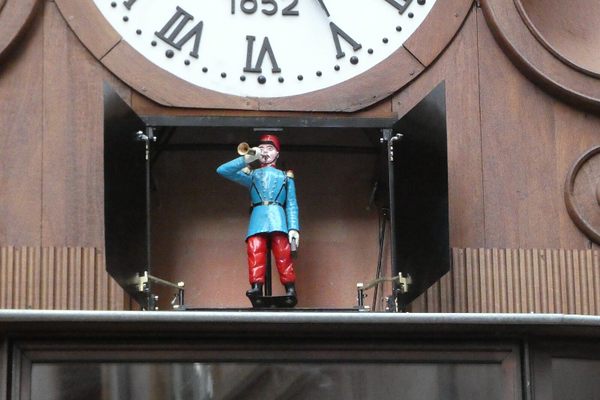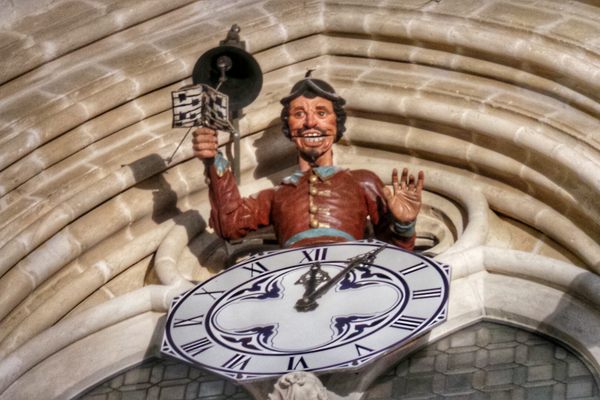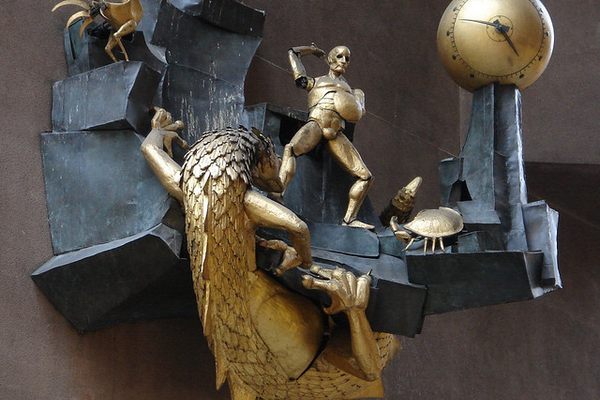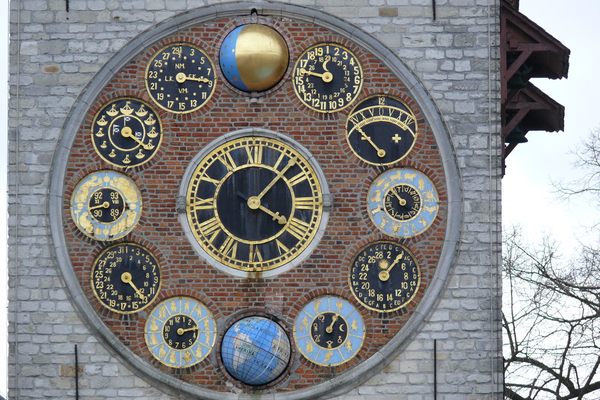About
Every hour on the hour, the unassuming façade of a villa across from the imposing Château de Blois in France transforms into an enormous mechanical clock.
Against a backdrop of clanging bells, eerie music, and vocalizations, six golden dragon heads emerge out of windows, snapping their jaws. Two giant clawed hands crush balcony railings, and a serpentine tail twirls from the attic window.
The installation was created in 1998 by French artists Michell and Jean-Pierre Hartmann, and is an homage to the legendary magician and illusionist Jean Robert-Houdin. A statue of Blois' famous clockmaker-cum-master magician stands in the square in front of the building which houses a museum of magic, the Maison de la Magie. Inside the building, Robert-Houdin's creations are on display, both original contraptions and recreations, along with other tributes to illusionist magic.
Robert-Houdin was born in Blois, and had his own collection on display, but it is unclear if this is the same building, or one nearby. The early filmmaker George Méliès also used this building as a theatre space for some of his early presentations.
The façade of the building is pretty, but otherwise unremarkable until the spectacle begins, which is extraordinary. There are six mechanical dragon heads, 21' long each, along with two 4 1/2' paws, topped by the 18' tail. They are constructed of modern materials — carbon fiber and resin epoxy — but the design looks to be inspired by the old château's decorative motifs of similar golden salamanders, which were a symbol of the king. The artists have also created other large mechanical installations elsewhere.
The spectacle occurs every hour on the hour for about five minutes, after which, the heads, hands, and feet slowly retract back into the building, and the structure rebuilds itself.
Related Tags
Know Before You Go
Directly across from the Château de Blois, on the plaza
Published
October 21, 2009
